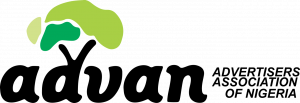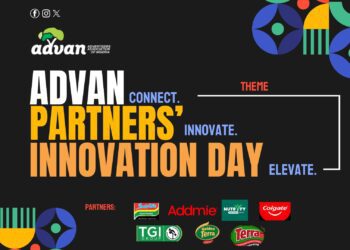There are three major factorsidentified by analysts as responsible for the downward trend of marketing activities in Nigeria in the last two quarters of 2015. The cautious take- off of the current Nigerian government, the free fall in crude oil prices leading to the drastic fall in the value of the naira and the absence of a clear policy direction that could have helped business owners take daring business decisions. Major brand owners had no options than to slice down their advertising and marketing budget significantly.
Even though globally, experts had predicted a tough marketing year in 2016, many brand owners in Nigeria, especially the FMCGs, were still expected to aggressively launch out their marketing activities to reduce huge consignments stacked in their warehouses caused by the current low purchasing power of consumers.
At the beginning of the first quarter of this year, despite its brouhaha with Nigeria’s Ministry of Communications over an unpaid fine of over a trillion naira, MTN kicked off with the finalization of its acquisition of Visafone, the largest CDMA operator in Nigeria. This deal is expected to increase MTN’s edge over other mobile operators.
Also in the last quarter, the regulatory impasse between the country’s telecommunication regulator, Nigerian Communications Commission, and MTN remained at the front burner with the announcement of a payment of N50 billion “good faith deposit” by MTN. After the payment, MTN Nigeria’s Chief Executive Officer, Ferdi Moolman, announced the company’s decision to withdraw MTN’s law suit against the Nigerian government as they explore other options to settle with the Nigerian government.
MTN’s galaxy of challenges has emboldened competitors like Airtel to go after the huge customer base of this market leader. This was the clear target of Airtel’s bold TV commercial released last quarter. Etisalat on her part has promised diverse court actions that would make the remaining quarters of 2016 very interesting.
Still in the last quarter, the world’s largest beverage company, Coca-cola formally announced that it has acquired 40 percent shareholding in Chi Limited, one of Nigeria’s largest juice and dairy company.
Although the financial terms of the Coca-Cola and Chi Limited deal is yet to be disclosed, it is estimated to be about $400m. This investment in Nigeria is Coke’s biggest overseas acquisition since 2012.
Of course, reasons for making acquisitions vary from one company to another. Speed of access to new product or market areas, increase in market share, reducing the strength of competition and acquisition of intangible assets are some of the major motives many firms seek such deal.
The coca-cola deal, according to analyst marks the first stage of the company’s plan for near total dominance of the African market by 2020 and redoubles its effort to expand beyond soft drink and soda segments.
From the world of advertising, an earth rumbling announcement that will change the face of advertising in West Africa permanently was made in the last quarter. Publicis Groupe, a global leader in marketing and communication with presence in 108 countries is now in an equity partnership with Troyka Group founded by advertising czar, Biodun Shobanjo.
The new move will see Troyka companies aligning with Publicis Groupe specialist agencies in the areas of media, public relations, advertising and digital media. Insight Communications will now trade as the representative of Publicis Worldwide in Nigeria; The Thiinkshop will function as Leo Burnett and Saatchi & Saatchi in Nigeria. Leo Burnett will also operate as a stand-alone entity representing the worldwide network in Nigeria.
All Seasons Media, Nigeria’s pioneer independent media agency is now aligned with Zenith Optimedia. Media Perspectives another media specialist shop in the group will operate the Starcom Mediavest Group brand name. Also in the group are The Quadrant Company and HotSauce, these PR and new media agencies respectively will trade as representatives of corresponding brands in the Publicis Groupe – MSLGROUP (PR) and Nurun (New media/Digital Marketing).
Speaking on the depth of the 25% equity stake acquired by Publicis, Mr. Shobanjo explained that, “any brand that Publicis has in any part of the world, we have absolute right to trade with those names in Nigeria. We have only started out with just six brands; as we go along and identify other brands and services that will serve the needs of our clients, we will not hesitate to set up shops to offer those services as this relationship is just evolving”.
The FMCG segment also witnessed a monumental leap in the first quarter of 2016 when a Tomato Paste Factory that can produce 450,000 tonnes of tomato paste was commissioned by the wife of the President, Mrs Aisha Buhari in Lagos. The factory, which will produce Erisco brand of tomato paste is Africa’s largest and fourth largest tomato paste plant in the world, according to its owners.
Eric Umeofia, CEO of Erisco Foods puts it succinctly :” this revolution in tomato paste production will stop the annual wastage of over 75 per cent of fresh tomatoes across Nigeria. We as off-takers will produce and process to meet our local demands and export to earn foreign exchange, provided government continues to support us”.
Although most brand owners have come out with tight marketing budgets, observers still expect an exciting marketing turf this 2016.Brands and marketers that want to thrive, grow, and prosper in the remaining three quarters of 2016 must utilize “value-added” techniques to take the edge above competition.
For marketing communications players the wisest response to these postulations is delivering quality, impactful ideas on a lean budget, as clients would be on the lookout for solution providers and game changers, not just service providers.
The digital transformation was not revolutionary in 2015. Many analysts expect the digital platform to take the centre stage in 2016 as more brands would seek to utilize this cost effective platform to differentiate themselves and their brands from competition
Franklin Ozekhome, marketing strategist and founder of TINK Africa shares his feeling on this trend. He feels marketing in 2016 will be driven based on the design of innovative business and revenue models; the creation of cost-effective engagement platforms; and the ability to distill consumer trends and insights as and when they occur, and apply them in the development of business strategies.








